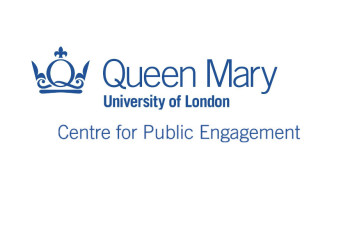Events
Empowering local community groups in university-community partnerships

Date: Monday 22 April 2024 14:00 - 16:00
Location: QMUL Mile End Graduate Centre - Room GC602
In recent years, there has been a growing effort in implementing community-based learning and teaching (CBLT), which describes an educational experience in which students engage in organised activities that benefit the local community as part of their academic curriculum. CBLT enables students to not only strengthen their academic knowledge, but also enhances their civic responsibility.
Feedback from existing community partners indicates that community groups would like more active involvement in shaping such partnerships with universities. Dr David Geiringer currently runs an internship scheme (‘History and Heritage Internship’ module) at QMUL with multiple (n=60+) partner organisations. Several partner groups have expressed an interest in expanding and indeed reshaping the way they collaborate with the university as a whole to develop new networks and working practices to better support knowledge exchange between QMUL and the communities.
Motivated by this, the proposed 2-hour in-person workshop at QMUL funded by the Queen Mary Centre for Public Engagement will explore how community partners experience community-university collaborations. The intention is to develop and extend CBLT by foregrounding the voices of community leaders/representatives - we hope to build more mutually beneficial practice, while also extending the networks of our partners beyond the humanities and social sciences, thereby enabling them to work with the wider university.
While these partnerships provide beneficial learning experiences for our students, we have a limited insight into the aims, expectations, and benefits of our community partners. Moreover, the community partners have limited scope to play a formative role in the design and delivery of teaching and learning. Recently published research by Dr Rehan Shah has also examined some of the key challenges and opportunities of CBLT by considering the views of university stakeholders, leaving scope for future work to incorporate the broader views of community partners in evaluating this form of pedagogical practice. Consequently, insights from these workshops can also help influence best practice models for CBLT implementation at other QMUL schools such as the School of Engineering and Materials Science.
Through a series of forums, workshopping exercises and group discussions (some prompted by student questionnaire feedback), this workshop will enable community partners to co-develop future collaborative endeavours and develop a blueprint for more inclusive and mutually beneficial partnerships.
Participant feedback on the workshop will be obtained through an anonymous survey form distributed to attendees at the end of the workshop to measure its impact and benefits and co-develop resources/outputs to support future practice.
Please note:
- Registration will be limited to the first 20 individuals signing up, so please only register if you are able to attend in person.
- Tea, coffee and refreshments will be provided during the afternoon.
| People: | |
| Research Centre: |


